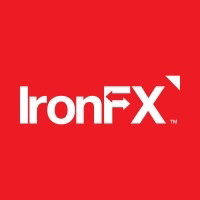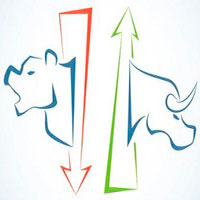CFDs are financial derivatives that allow traders to speculate on the price of the underlying assets without having to physically own the asset. CFD brokers enable traders to buy or sell CFDs based on the price movements of the underlying assets such as forex, stocks, commodities, etc. CFD brokers typically provide traders with trading platforms, access to different global markets, and a range of trading tools and resources. CFD brokers earn their revenue through the spread, which is the difference between the bid and ask price of the CFD.
A key attraction of CFD trading is access to leverage which enables traders to control larger positions than their actual capital investment would accommodate. However, this does increase the risk involved in trading, as losses may be amplified. Therefore, traders need to understand the significant risks involved in CFD trading and use risk management strategies to mitigate their exposure.
CFD brokers can typically be categorised into Market Maker brokers and No Dealing Desk (NDD) brokers. No Dealing Desk brokers can be further categorised into Electronic Communication Network (ECN) brokers and Straight Through Processing (STP) brokers. In this article, we’ll take a closer look at how they differ from one another.
Market Maker Brokers
Also known as Dealing Desk brokers, these brokers provide a variety of CFDs that cover global financial markets like forex, commodities, shares, indices, etc. Traders can go long or short on these markets. Market brokers essentially create the market for their clients so often take the other side of a client’s trade. Market makers have their liquidity. They create their prices for the CFDs they offer (i.e., they provide both a sell and a buy quote). To a degree, this is usually based on the price of the underlying asset.
A market maker typically makes money from the spread between the bid and ask prices, and by providing liquidity to their clients.
The size of the bid-offer spread is largely dependent on the liquidity and volatility of the underlying asset. As a result, market makers may offer narrower or wider spreads dependent on the particular instrument. However, being that market maker brokers control the prices at which orders are filled, fixed spreads are also common.
Reasons why traders choose market maker brokers
There are several reasons that traders engage in the services of market maker brokers. These include fixed spreads, lower entry barriers, potential for quick executions, single-price quotations, and no commission on trades. Market makers may also offer additional services such as risk management tools, educational resources, and trading platforms.
No Dealing Desk Broker
As the name implies, these brokers do not pass client orders through a dealing desk. Instead, they provide a trading platform that allows clients to trade directly with the interbank rates. In other words, they send buy and sell orders directly to the forex market. They do this through liquidity providers, banks, financial institutions, other brokers, etc). Two types of No Dealing Desk brokers are STP brokers and ECN brokers.
Straight-Through-Processing (STP) Broker
This broker routes client orders directly to their liquidity providers with whom they work, and who have access to real-time interbank market rates. Each liquidity provider quotes their bid and asks prices and executes the trades. So what does this look like in practice relative to forex? Well, if your STP broker has access to 3 liquidity providers, in their trading platform you will see 3 different quotes of bid and ask prices for a particular currency pair (e.g., EUR/USD). In this way, by working with an STP broker, a trader gains access to the most competitive bid and ask prices available in the forex market.
Electronic Communications Network (ECN) brokers
Like STP brokers, ECN brokers pass client orders to the interbank market. However, they don’t always use liquidity brokers to do this. Instead, ECN brokers sometimes use prime brokers who can take up these offers. ECN brokers are all STP brokers, whereas not all STP brokers are ECN brokers.
Disadvantages of trading on ECN or STP platforms
- ECN and STP platforms are commonly known for their transparency and speed of execution. However, there are some disadvantages to trading on these:
- Higher trading costs: ECN and STP brokers may charge a commission on each trade. This is sometimes higher than the spread charged by traditional market maker brokers.
- Market spikes: ECN and STP brokers provide direct market access. As a result, prices can swing quickly and without warning. This may lead to slippage and increased trading costs.
- Liquidity: ECN and STP platforms are typically used by more experienced traders, traders with access to larger amounts of capital, or financial institutions.
- Complexity: ECN and STP trading requires a higher level of technical expertise and knowledge compared to traditional trading methods.
- Lack of client support: ECN and STP brokers typically do not provide the same level of customer support as traditional brokers, which can be a disadvantage for inexperienced traders.
In summary, while ECN and STP platforms offer many advantages for experienced traders, they may not be the best option for all traders, especially those who are new to the market.
What makes CFDs so popular
There are several reasons why using CFDs has become a popular way to trade among global traders. For one, CFDs offer leverage. This allows traders to trade on margin, opening larger trades with lower amounts of capital. However, while leverage may increase one’s potential to generate more profit, it can also amplify losses considerably. This makes having a good understanding of how leverage works vital. A strategic risk management plan is also recommended.
Secondly, CFDs also offer traders access to markets that could otherwise be hard or costly to access. This includes metals, forex, stocks, indices, etc. CFDs are generally more accessible to a larger scope of traders due to low minimum deposit requirements.
CFDs allow traders to go long or short on a particular asset, increasing one’s potential to generate revenue in volatile markets. Finally, CFD traders are not required to physically take ownership of the underlying assets they are trading.
Become a strategic trader with T4Trade
T4Trade is a global broker, with clients in many different countries worldwide. T4Trade offers its traders flexible leverage up to 1:1000, tight spreads, fast execution, quick and easy withdrawals and outstanding 24/5, multilingual client support. T4Trade traders can access more than 300 financial instruments across 6 asset classes (forex, metals, futures, shares, indices and commodities).
The T4Trade Academy offers all types of traders an extensive pool of informative resources to boost skills and expertise. The Academy is comprised of insightful e-books, webinars, podcasts, and videos-on-demand, delivered by a team of research experts. In addition, incredibly useful blogs and FAQ pages answer many forex-related questions to help you become a more strategic broker.

















